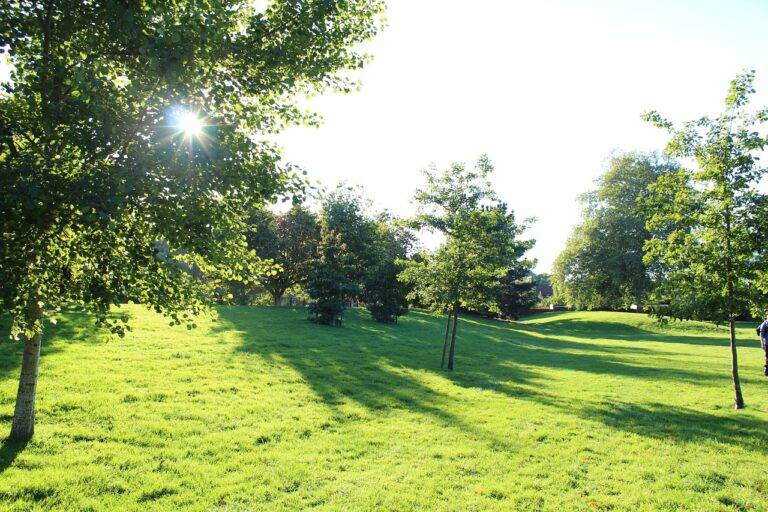The Importance of Composting for Soil Health and Waste Reduction: All pannel.com, New betting id, Gold365
all pannel.com, new betting id, gold365: Composting is a simple yet powerful way to improve soil health and reduce waste. By decomposing organic materials such as food scraps, yard waste, and paper products, composting creates a nutrient-rich soil amendment that can be used to nourish gardens, lawns, and agricultural fields. In this article, we will explore the importance of composting for soil health and waste reduction.
Why is composting important for soil health?
1. Enriches the soil: Compost adds essential nutrients to the soil, such as nitrogen, phosphorus, and potassium, which are necessary for plant growth. These nutrients help improve soil structure, water retention, and aeration, leading to healthier and more productive plants.
2. Increases microbial activity: Compost is teeming with beneficial microorganisms that break down organic matter and release nutrients for plants to absorb. These microbes help suppress harmful pathogens, improve soil fertility, and enhance plant resistance to diseases and pests.
3. Enhances soil biodiversity: Compost fosters a diverse community of soil organisms, including earthworms, fungi, and bacteria, that play vital roles in nutrient cycling, soil aggregation, and ecosystem stability. This biodiversity contributes to healthier soils and more resilient ecosystems.
4. Improves soil structure: Compost contains organic matter that helps bind soil particles together, creating aggregates that improve soil porosity, drainage, and aeration. This enhanced soil structure reduces compaction, erosion, and runoff, promoting healthy root growth and water infiltration.
5. Reduces the need for synthetic fertilizers: By using compost as a natural fertilizer, gardeners and farmers can minimize their reliance on synthetic chemicals that can harm soil health, water quality, and biodiversity. Compost provides a sustainable and eco-friendly alternative that replenishes soil nutrients without causing environmental harm.
How does composting help reduce waste?
6. Diverts organic waste from landfills: Organic materials account for a significant portion of municipal waste sent to landfills, where they decompose anaerobically and produce methane, a potent greenhouse gas. Composting diverts these materials from landfills, where they can instead be recycled into nutrient-rich soil amendments.
7. Reduces greenhouse gas emissions: Composting organic waste produces compost, a stable soil amendment that can sequester carbon and mitigate greenhouse gas emissions. This process helps offset the carbon footprint associated with organic waste disposal and synthetic fertilizer production.
8. Promotes a circular economy: Composting closes the loop on waste management by transforming organic materials into valuable resources that can be used to enrich soil, grow food, and sustain ecosystems. This circular economy approach minimizes waste generation, conserves natural resources, and fosters a more sustainable society.
In summary, composting is a vital practice that benefits soil health and waste reduction in numerous ways. By enriching the soil with nutrients, enhancing microbial activity, improving soil structure, and reducing the need for synthetic fertilizers, composting promotes healthy and resilient ecosystems. Additionally, by diverting organic waste from landfills, reducing greenhouse gas emissions, and promoting a circular economy, composting contributes to a more sustainable and environmentally friendly future.
FAQs:
Q: What materials can be composted?
A: Organic materials such as fruit and vegetable scraps, coffee grounds, eggshells, yard waste, leaves, grass clippings, and paper products can be composted.
Q: How long does it take for compost to be ready?
A: The composting process typically takes a few months to a year, depending on factors such as the materials used, the size of the compost pile, and environmental conditions.
Q: Can I compost meat, dairy, and fats?
A: It is best to avoid composting meat, dairy, and fats as they can attract pests, produce odors, and slow down the composting process. Stick to composting plant-based materials for best results.
Q: How do I start composting at home?
A: To start composting at home, you can use a compost bin or pile in your backyard or a composting system designed for indoor use. Begin by collecting organic materials, layering them in the compost bin, and turning the pile regularly to aerate and accelerate the decomposition process. With time and patience, you will soon have nutrient-rich compost to enhance your garden and reduce waste.
Composting is a simple and effective way to improve soil health, reduce waste, and promote sustainability. By harnessing the power of decomposition, we can create a more vibrant and resilient ecosystem that benefits both people and the planet. Start composting today and make a positive impact on the world around you.







